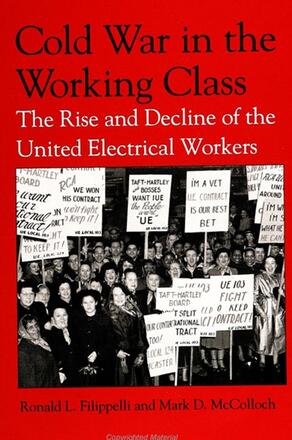
Cold War in the Working Class
The Rise and Decline of the United Electrical Workers
Alternative formats available from:
Description
This book tells the story of the rise and decline of the United Electrical, Radio, and Machine Workers of America (UE) from 1933 to 1990. Once the third-largest industrial union in the United States, the UE was the most powerful left-wing institution in U. S. history and arguably the most significant victim of the anti-communist purges that marked post-World War II America. This is an institutional study of the formation of the UE and the struggle for its control by left-wing and right-wing factions. Unlike most books on unions during the Cold War, this study carries the story up to the present, showing the long-term effects of the ideological battles.
Ronald L. Filippelli is Professor of Labor Studies and Industrial Relations at Penn State University, and is the author of several books, including Labor in the USA: A History and American Labor and Postwar Italy. Mark D. McColloch is Associate Professor of History at the University of Pittsburgh, Greensburg, and is the author of White Collar Labor in Transition.
Reviews
"This is an important and engaging study of one of the most dynamic and effective of the industrial unions of the CIO era. Filippelli and McColloch have used the UE and CIO records to good effect to present a vivid picture of the ideological conflicts of the early Cold War era. Cold War in the Working Class documents the excesses of post-World War II anti-Communism and sheds important light on the dilemmas faced by trade unionists in a period of heightened international and domestic tensions. " — Robert Zieger, University of Florida
"What I like most about this book is, from a methodological standpoint, the extensive use of oral history data to back up archival and published sources; and from a narrative standpoint, the continuation of the story beyond the usual Cold War Era treatment up to virtually the present day. The story thus becomes one not only of Cold War confrontations in labor but also of survival and new challenges for labor in general, through the perspective of one exceptional union. " — Paul Buhle, Visiting Scholar, American Civilization, Brown University